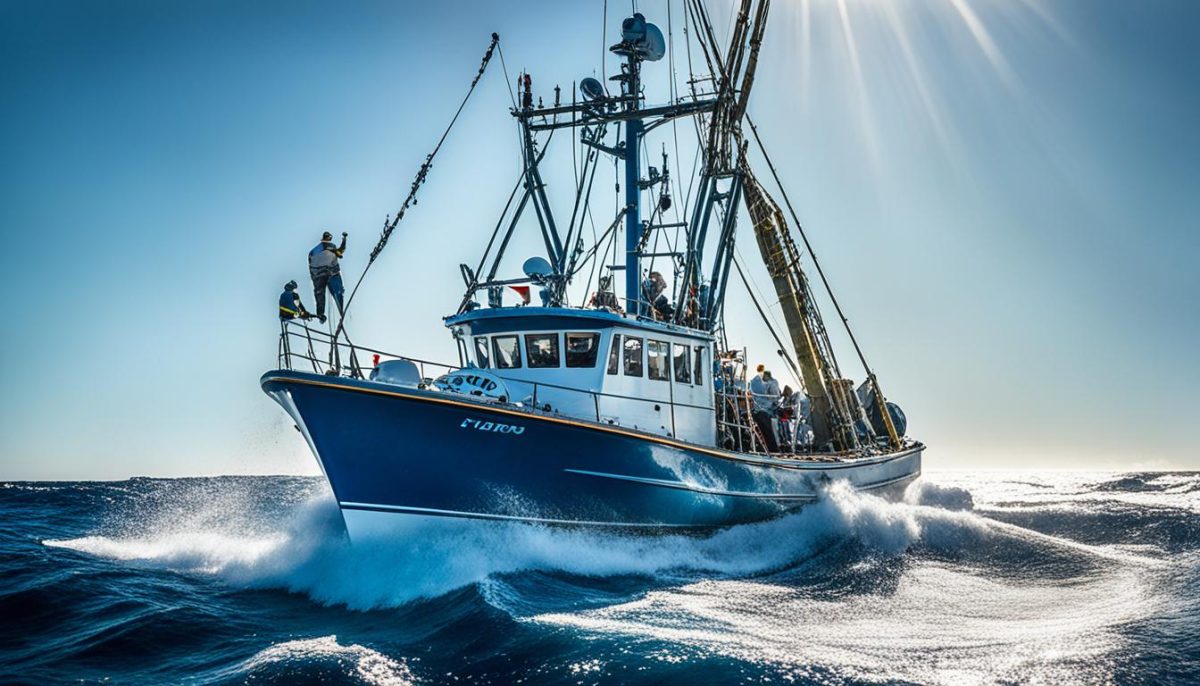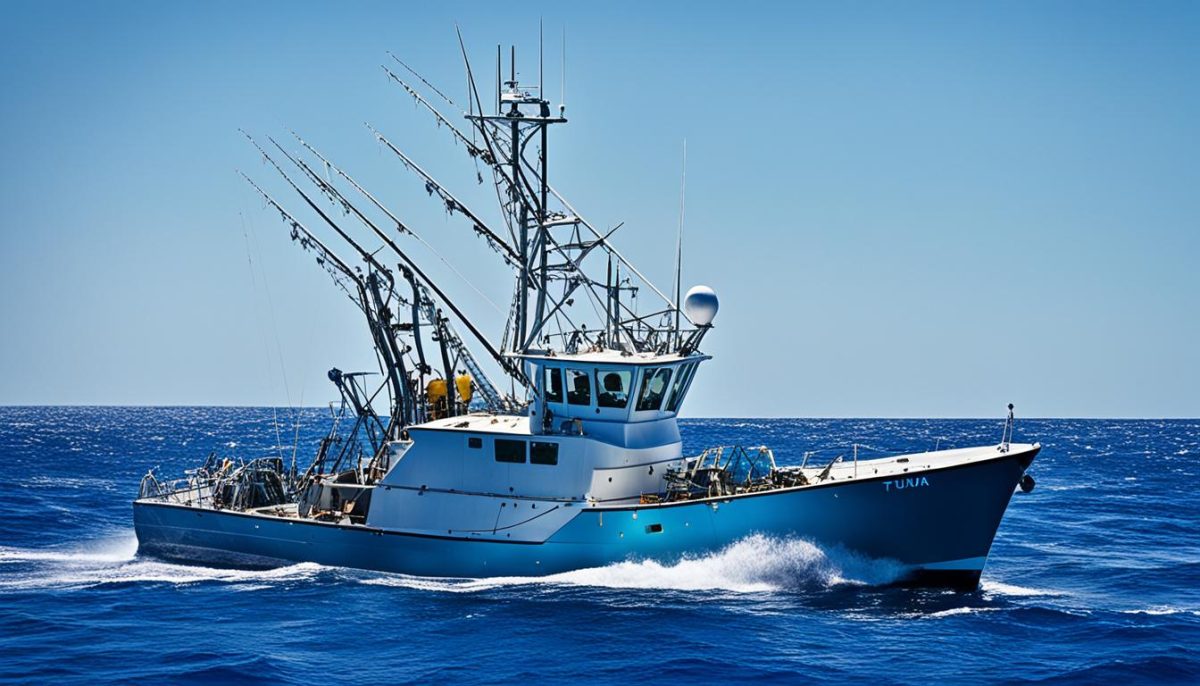In this section, we will explore the costs associated with owning a tuna fishing boat and discuss the various factors that can influence the price of these vessels. Understanding the expenses involved will help you budget for your next maritime investment.
When it comes to purchasing a tuna fishing boat, one of the first questions that comes to mind is the cost. The price of a tuna fishing boat can vary depending on several factors. Factors such as the size, brand, age, and condition of the boat can all have an impact on its price. Additionally, the features and equipment included in the boat, such as fishing gear, navigation systems, and on-board amenities, can also affect its overall cost.
It’s important to consider these factors and understand the costs associated with owning a tuna fishing boat before making a purchase. By doing so, you can better plan and budget for this investment.
In the following sections, we will delve deeper into the factors that can influence the price of a tuna fishing boat and provide insights on how to understand the costs associated with owning one.
Factors Affecting the Price of Tuna Fishing Boats
The price of a tuna fishing boat can vary significantly depending on several key factors. Understanding these factors is essential when considering the cost of owning a tuna fishing boat.
Tuna Boat Size
The size of the boat is a crucial determinant of its price. Larger boats are typically more expensive due to their increased capacity and capabilities. They offer greater stability, storage space, and the ability to withstand harsh marine conditions. However, smaller boats can still be suitable for tuna fishing and may be more cost-effective for those operating on a tighter budget.
Boat Specifications
Boat specifications, such as the materials used in construction, design features, and overall quality, also impact the price. Boats made from premium materials and boasting advanced technologies are generally priced higher than their counterparts. Consider your specific needs and preferences to determine which specifications are essential for your tuna fishing endeavors.
Fishing Gear
The type and quality of fishing gear play a significant role in the cost of owning a tuna fishing boat. High-quality fishing gear, including rods, reels, lines, and bait, ensures a productive and successful fishing experience. Investing in top-notch gear can contribute to a higher upfront cost but may yield better results in the long run.
Additional Equipment
In addition to fishing gear, various other equipment may be required for tuna fishing, such as navigational devices, radar systems, fish finders, and communication tools. The inclusion of these additional equipment items will impact the overall price of the boat. Evaluate your specific needs and the fishing conditions you anticipate to determine the necessary additional equipment.
By considering these factors, you can make an informed decision when selecting a tuna fishing boat that fits your budget and requirements. Keep in mind that while the initial cost may be significant, investing in a high-quality boat and equipment can contribute to a more enjoyable and successful tuna fishing experience in the long run.
Understanding the Costs of Owning a Tuna Fishing Boat
Owning a tuna fishing boat can be an exciting venture, but it’s essential to consider the various costs associated with it. While the initial purchase price is a significant investment, there are other expenses to factor into your budget.
Maintenance Expenses
Maintaining a tuna fishing boat is crucial to ensure its optimal performance and longevity. Regular maintenance expenses may include engine servicing, hull repairs, and equipment upgrades. These costs can vary depending on the size and complexity of your boat, as well as the frequency of use. It’s advisable to create a budget for routine maintenance to prevent unexpected breakdowns and minimize long-term repair expenses.
Fuel Costs
Tuna fishing boats are known for their high fuel consumption due to the long hours spent at sea. Fuel costs can significantly impact your budget, especially if you frequently venture far offshore. Factors such as engine efficiency, cruising speed, and the distance traveled can influence the amount of fuel consumed. It’s essential to calculate your estimated fuel expenses based on your anticipated fishing trips to ensure you have adequate funds allocated.
Insurance Fees
Insuring your tuna fishing boat is essential to protect your investment from potential risks such as accidents, theft, or damage. Insurance fees can vary based on factors such as the boat’s value, usage, location, and coverage options. It’s important to consult with marine insurance providers to understand the different policies available and choose the one that suits your needs and budget.
Additionally, there may be other ongoing expenses to consider, such as mooring fees, fishing licenses, safety equipment, and crew wages if applicable. It’s crucial to factor in these costs when budgeting for your tuna fishing boat to ensure you have a realistic understanding of the overall expenses involved.

By considering not only the purchase price but also the maintenance expenses, fuel costs, insurance fees, and other ongoing expenses, you can ensure that you are financially prepared to own and operate a tuna fishing boat. Understanding these costs will allow you to manage your budget effectively and make informed decisions throughout your fishing adventures.
Budgeting for Your Tuna Fishing Boat
Planning and budgeting are crucial when investing in a tuna fishing boat. Whether you are a seasoned angler or a first-time boat owner, understanding your financing options is essential. Consider exploring different avenues such as loans, leasing, or even boat shares to determine which option suits your financial situation best.
When it comes to purchasing a tuna fishing boat, you’ll also need to weigh the pros and cons of buying used versus new. Used boats may offer a more affordable upfront cost, but they could come with maintenance and repair expenses in the long run. On the other hand, new boats provide the benefit of warranty coverage and the latest technology but may require a larger investment upfront.
It’s important to look beyond the immediate costs and consider the long-term investment potential of your tuna fishing boat. Factors such as fuel efficiency, resale value, and maintenance requirements can significantly impact the overall cost of ownership. Take the time to research different boat models and consult with experts in the industry to make an informed decision.
Lastly, don’t forget about financial planning. Determine your budget, taking into account not only the purchase price of the boat but also ongoing expenses such as fuel, maintenance, insurance, and storage. Consider working with a financial advisor or using budgeting tools to help you create a comprehensive financial plan that aligns with your goals.

